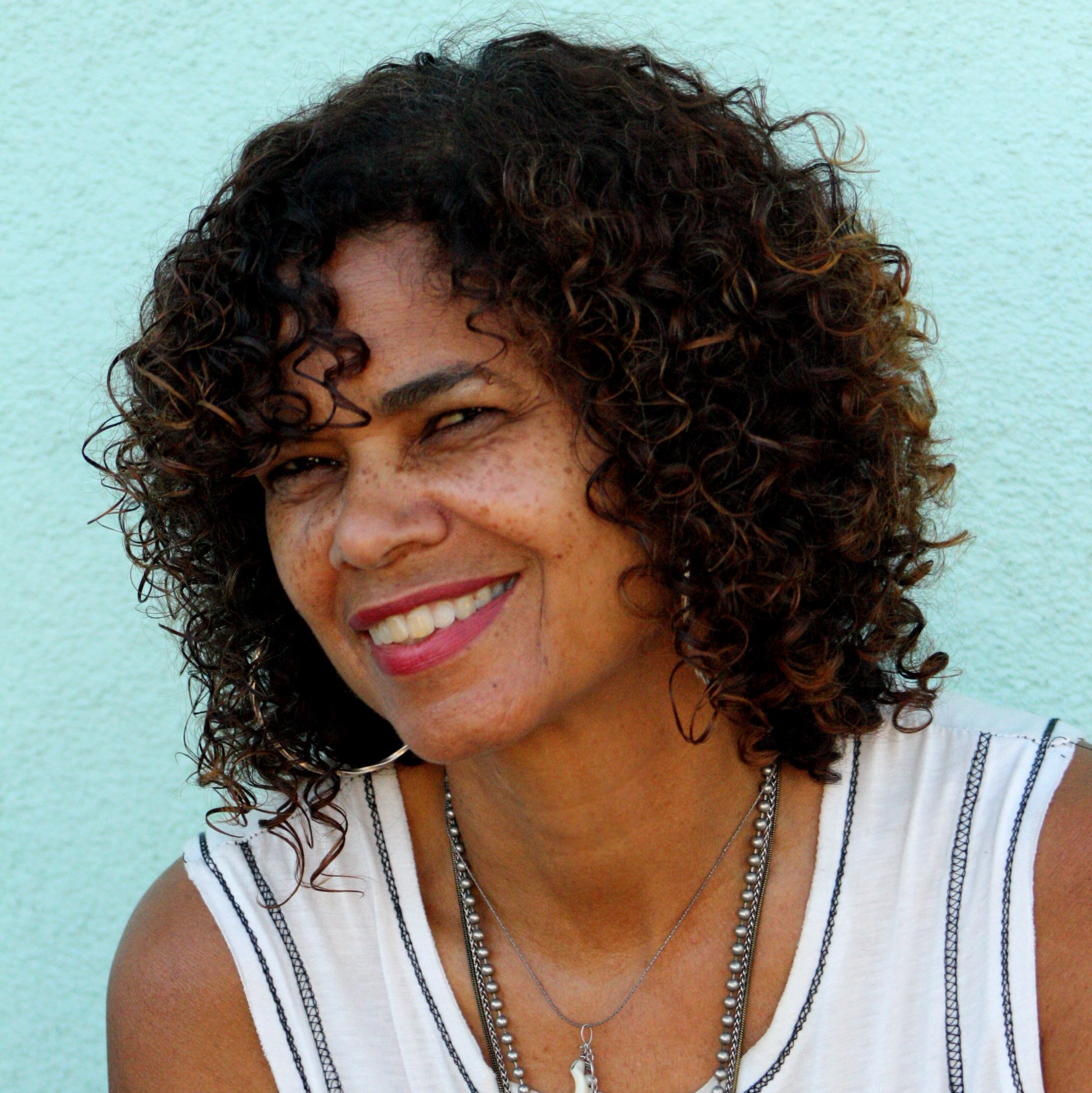Erin Aubry Kaplan is an journalist and author who has been writing about race, politics, culture and identity since 1992. She contributes regularly to the opinion pages of the New York Times and Los Angeles Times, and in 2007 became the first African American weekly opinion columnist in the paper’s history. In addition to teaching literature and writing for Bridge, she has taught in Antioch’s MFA writing program (creative nonfiction). She is the author of two books, “Black Talk, Blue Thoughts, and Walking the Color Line: Dispatches From a Black Journalista,” and “I Heart Obama.” She lives in Inglewood with several dogs and two cats.
- BA, English, UCLA (1983)
- MFA, Theater Arts, UCLA (1987)
Though the workshop and mentoring processes are all about student growth, they are necessarily about teacher growth as well. For me, the experiences are invaluable because they synthesize in a unique and consistent way my two writing lives, journalist and creative writer. As a journalist I’ve done plenty of editing, analysis and sharpening main points and angles; as an essayist and creative writer I put aside those imperatives and let my vision and language range as far and wide as they want. Both approaches are essential to producing thorough, energetic, purposeful and passionate work that satisfies the only audience that matters: the writer him/herself. It’s the kind of work I fully expect to help students produce.
I see the whole enterprise as a partnership that is equal, but with far more onus on the writer. Just to be clear, I can’t teach anybody how to write (some days I can hardly do it on my own), a mysterious, indescribable act that’s less an act than a rite or compulsion. I can only respond to what I see on a page. I can suggest and direct, laud and critique, tell a writer when something’s working or not. But writers are ultimately on their own. That’s the whole wonderful thing about the undertaking, the reason why the wrangling and frustration and sometimes failed attempts at discipline pay off; when you do good you know that you did it, nobody else. In terms of making a manuscript sing, you are the only one who can do the job. I’ve known editors at magazines and newspapers who habitually take copy and, seeking to improve it, simply ‘overwrite’ it—change words and language to their liking rather than let the writer figure out what changes make the most sense (these editors claim it’s the pressure of deadline that makes them do it, but I believe it’s something less honorable and less neutral than that).
Nothing remotely like that happens with me. I am truly most interested in what writers have to say, in helping them find their own words, mine the depth of their own feeling and follow as closely and faithfully as they can the trajectory of their thoughts and narratives. Aiding in each writer’s continued literary self-discovery is my only job, and my best reward.
- ‘AOC: The Fearless Rise and Powerful Resonance of Alexandria Ocasio-Cortez’ (2020)
- ‘The Trouble With Post-Blackness’ (2015)
- ‘Rise Up Singing: Black Women Writers on Motherhood’ (2004, American Book Award winner
- Award for Journalism, 2001, Pen USA West
- Historian of the Lions Award, 2008, Center for the Study of Political Graphics

